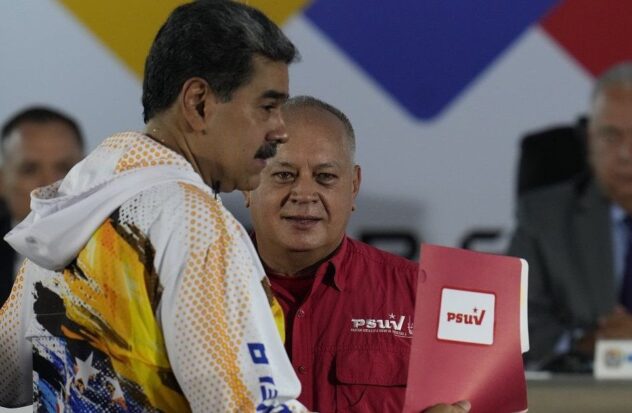The increase in public spending during electoral times has been part of the Chavismo-Madurismo strategy to support the mobilization of voters to favor the United Socialist Party of Venezuela (PSUV).
The presidential election on July 28 is no exception to this strategy. Despite the fiscal restriction faced by Nicolás Maduro’s regime, there are very clear signs that his administration has begun to use the spending lever to try to take advantage of that resource.
This is a complex task if one considers that the trend observed in most public opinion studies suggests that the best voting scenario for Maduro grants him the support of 35% of voters, while the Unitary Platform candidate Edmundo Gonzalez shows a sale of up to 20 percentage points in voting intention.
Despite the fiscal effort that the Venezuelan regime is making to try to reconnect with citizens and achieve the return of a utilitarian vote in favor of Maduro, the concrete effect of the direct transfer of resources – through bonds and social plans – is very far from what was achieved during the electoral campaigns that coincided with the economic boom of the 2004-2012 period.
However, despite its limited effect, it is presumed that with just over two months to go before the presidential election, Maduro will continue to execute compensation programs and announce promises of improvements in the undermined Venezuelan social protection system.
According to the situation report from the CarpeDiem firm, “although the announcements on May 1 (worker’s day in Venezuela) fell far short of the aspiration of the social and labor movements, the increase in the so-called “Economic War Bonus” ” (in $30 per month) aimed at active workers in the public sector (about 1,500,000 beneficiaries) and retirees in the public administration (about 800,000 beneficiaries) represents an expenditure of close to $207 million for the months of May, June and July.”
According to economist Leonardo Vera “in another gesture that denotes a certain effort to extend spending, Maduro announced on Wednesday, May 1, the delivery of 50 thousand new credits from CrediMujer and 40 thousand new financing through the Great Young Venezuela Mission ( …) A week later, in the context of the closing of the National Congress of Direct Experiences in the Management of Popular Power, Maduro approved resources to execute 2,000 new projects proposed through the country’s Communal Councils. The resources would go directly to these communal power organizations (…) In March, within the framework of International Women’s Day, Maduro authorized the delivery of a total of 33,000 loans to female entrepreneurs for a total amount equivalent to $10 million. This means that each venture would be receiving an average financing of $303.
More bonuses
Every month, Nicolás Maduro gives Venezuelans a series of transfers in bolivars called Bonos de la Patria. Since January of this year, the amounts have been adjusted upwards and new transfers have been appearing.
The amounts today range between $3 and $9. So far in the month of May, it has delivered up to 11 different bonds, which implies a 44% increase in public spending.
New oil investments
On the other hand, despite the restrictions and return of sanctions left by the replacement of General License 44 by General License 44 of the Office of Foreign Assets Control (OFAC), the interest of certain investors in the oil sector is maintains, as detailed in the situation report of the CarpeDiem firm.
Despite the restrictions due to the reimposition of sanctions, the Spanish oil company Repsol announced that it hopes to increase oil production with the incorporation of two crude oil fields, after signing an agreement with PDVSA. The European company has obtained a license to free itself from the new sanctioning measures.
On the other hand, the company LNG Energy Group announced that it had signed an agreement with PDVSA to develop five oil fields “that currently produce approximately 3,000 barrels of oil per day,” according to the statement issued by the firm.
In the same direction has been the announcement of the company based in the British Virgin Islands, GoldPillar, which has obtained an equity investment from the Canadian New Stratus Energy to enter into an agreement with PDVSA in the recovery of wells in the eastern Venezuela.
Likewise, Petroindependencia, a joint company between Chevron and PDVSA, activated the first of 17 new generation wells that it plans to install this year as part of the ‘Drilling Plan 2024’. However, it is still too early to evaluate whether these projects can yield the Venezuelan regime the desired effect in the face of the presidential election on July 28.
@Puzkas

